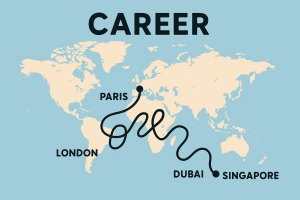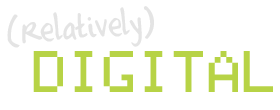 “Those who know do not speak. Those who speak do not know.” – Lao Tzu
“Those who know do not speak. Those who speak do not know.” – Lao Tzu
For years, I carried this quote as both shield and sword. But sometimes, those who’ve traveled many paths have stories worth sharing – especially when those paths were once criticized as unfocused, inconsistent, and lacking commitment.
The Case Against Generalists
In the early days of my career, my CV read like a geography lesson gone wrong. Different agencies, different continents, different categories – from automotive to finance, telecos to beauty, and eventually tech. The questions from recruiters were predictable: “Why couldn’t you commit to one industry?” “Don’t you think you lack deep expertise?” “How do we know you won’t leave us in two years?”
What they saw as career ADHD, I experienced as curiosity. But the market wasn’t ready for that narrative yet.
Enter David Epstein, and Range: The Vindication I Didn’t Know I Needed
Years later, David Epstein’s “Range: Why Generalists Triumph in a Specialized World” arrived like perfectly timed validation. Epstein examined the world’s most successful athletes, artists, musicians, inventors, forecasters and scientists, discovering that in most fields – especially those that are complex and unpredictable – generalists, not specialists, are primed to excel.
His central thesis challenged decades of conventional wisdom: range, defined as diverse experience across multiple fields, is more relevant in today’s society than specialization because the wicked problems of the modern world require bridging knowledge from multiple disciplines.
Suddenly, my “squiggly” career wasn’t a bug – it was a feature.
The Accidental Education
My journey from Spherical Brand Strategy Consulting in Dallas, Texas through WPP’s ecosystem in Paris and New York, then Facebook’s Business Partnerships team during social media’s explosive growth, McDonald’s European digital transformation, and finally L’Oréal across multiple regions wasn’t planned. But each transition became part of an inadvertent curriculum.
At Facebook, working on the launch of their first hardware with EE and Orange, I learned how platforms think and how technology amplifies creativity. McDonald’s in Europe taught me operational excellence at scale. The agency years across OgilvyOne, FullSIX, JWT, and Leo Burnett showed me how creative solutions emerge from constraints and how to navigate cultural nuances from Richemont luxury to P&G everyday essentials.
Moving from Dallas to Barcelona, Paris to New York, Dubai to London, and now Singapore meant understanding that while human behavior has universal patterns, cultural context determines execution. Each geography added another layer: American directness, Mediterranean relationship-building, Parisian intellectual rigor, New York’s performance orientation, Dubai’s multicultural dynamism, London’s heritage sophistication, Singapore’s digital-first innovation.
The categories seemed random but revealed connections. Technology’s systems thinking informed automotive’s aspiration marketing. Finance’s trust-building translated to beauty’s intimacy. Telecommunications’ network effects enhanced social platform strategies. Each experience became part of a larger understanding of human motivation and behavior.
The Traditional Criticism
The concerns about frequent job changes aren’t unfounded. Employers worry about loyalty, stability, onboarding costs, and lost institutional knowledge. These criticisms assume that longer tenure automatically equals better performance – an assumption Epstein’s research thoroughly dismantles. But the criticism stung nonetheless, especially early in my career when the narrative of specialization dominated.
Range in Practice
Over the years, I’ve shared insights from this journey on LinkedIn, treating my network as a laboratory for testing ideas across industries. Posts about books like Susan Cain’s “Quiet” and David Epstein’s “Range” resonated because they validated experiences many professionals share but few openly discuss. The marketing insights from judging APAC Effies connect to gaming strategies for men’s skincare. Lessons from The Marketing Academy Fellowship inform how we think about effectiveness across beauty categories.
Today, as Chief Marketing & Digital Officer leading transformation across L’Oréal’s 37+ global brands in SAPMENA – a region covering 40% of the world’s population – I finally understand why those career moves were perfect preparation. Every brand challenge draws on this accumulated range. Facebook’s platform thinking helps navigate TikTok partnerships for beauty brands. McDonald’s operational excellence informs how we scale marketing across 40+ markets. Leo Burnett’s creative storytelling shapes emotional connections across diverse cultures.
The Future Belongs to Range
As AI handles more specialized tasks, human advantage lies in pattern recognition across disciplines, ethical reasoning in complex scenarios, cultural translation, creative synthesis of disparate inputs, and leadership through ambiguity. These are fundamentally generalist capabilities.
The jobs of tomorrow will reward those who can connect dots across domains, not just dig deeper in single verticals. For those looking to develop range: embrace calculated curiosity, build bridges between experiences, focus on learning how to learn, cultivate diverse networks, and document your journey.
The Vindication
Today, when someone asks about my “inconsistent” early career, I think of Maslow’s insight I once shared: “If the only tool you have is a hammer, it is tempting to treat everything as if it were a nail.” I’m grateful I never became just a hammer.
My range – criticized in youth, celebrated in maturity – has become my greatest professional asset. In a world of increasingly complex, interconnected challenges, the ability to draw from diverse experiences isn’t just helpful, it’s essential.
The question isn’t whether you should develop range. In our wicked world, the question is: can you afford not to?
